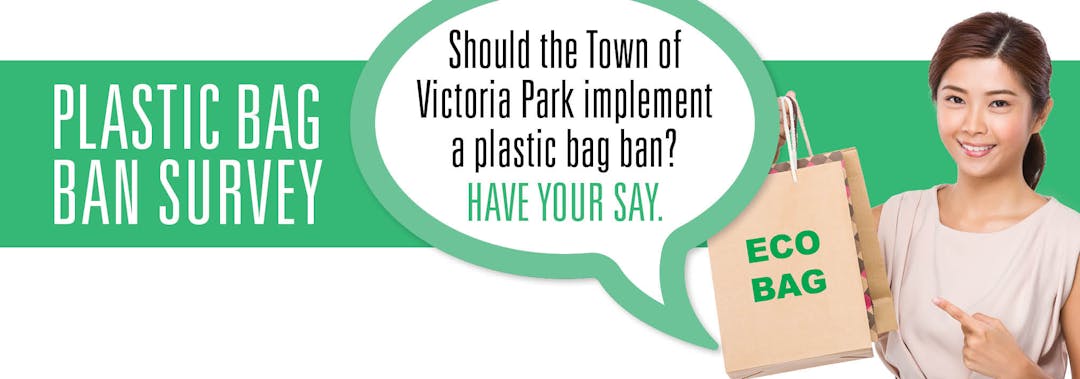Plastic Bag Ban
Consultation has concluded

The purpose of this survey is to establish a position from the community on possible plastic bag bans, so that this may inform a position for Council to adopt.
Background
The extent of plastic bag pollution occurring in terrestrial and marine environments has become a serious problem recognised at the international level. There is now a substantial body of evidence, on the impact that plastic is having on the environment.
The information gathered by Clean Up Australia through its annual clean up days, suggests that between 30-50 million plastic bags could be entering the Australian environment as litter every year.
Western Australia was found to have one of the highest levels of plastic pollution in the country, particularly along the Perth coast.
The Western Australian Local Government Association has asked councils whether they would support a state-wide ban on single-use plastic shopping bags.
It would bring Western Australia in-line with South Australia, the Australian Capital Territory and the Northern Territory, which have all banned shops from selling or giving away lightweight plastic bags; whilst Queensland, Victoria and NSW are working on a joint approach to bagless shopping.
Since South Australia banned plastic bags in 2009, 80 per cent of people now take their own bags when grocery shopping and plastic bag litter has halved in three years.
Thank you for participating
Thank you to those who responded to the plastic ban survey. There was a great deal of interest and healthy discussion on the topic.
The Western Australian Local Government Association (WALGA) requested council's input on whether they would support a statewide ban on single-use plastic shopping bags.
The key motivations for Local Government in Western Australia in seeking to act on plastic bags are to:
- Reduce litter in the terrestrial and marine environment; this reduces impacts on the environment and the need for resource intensive clean-ups.
- Reduce plastic bag contamination of alternative waste treatment plants and composting facilities; this increases the value of the compost and reduces the amount of pre-treatment necessary.
The purpose of the Town's plastic bag ban survey was to establish a position from the community on possible plastic bag bans, so that this may inform a position for the Town.
170 people responded to the survey. Amongst our respondents there was support for the plastic bag, with 158 voting "Yes", 14 voting "No".
The next step is that these results will be relayed to WALGA for consideration in the development of a state-wide policy position.
Again, thanks for your thoughts.
Want more information? Ask us a question.

